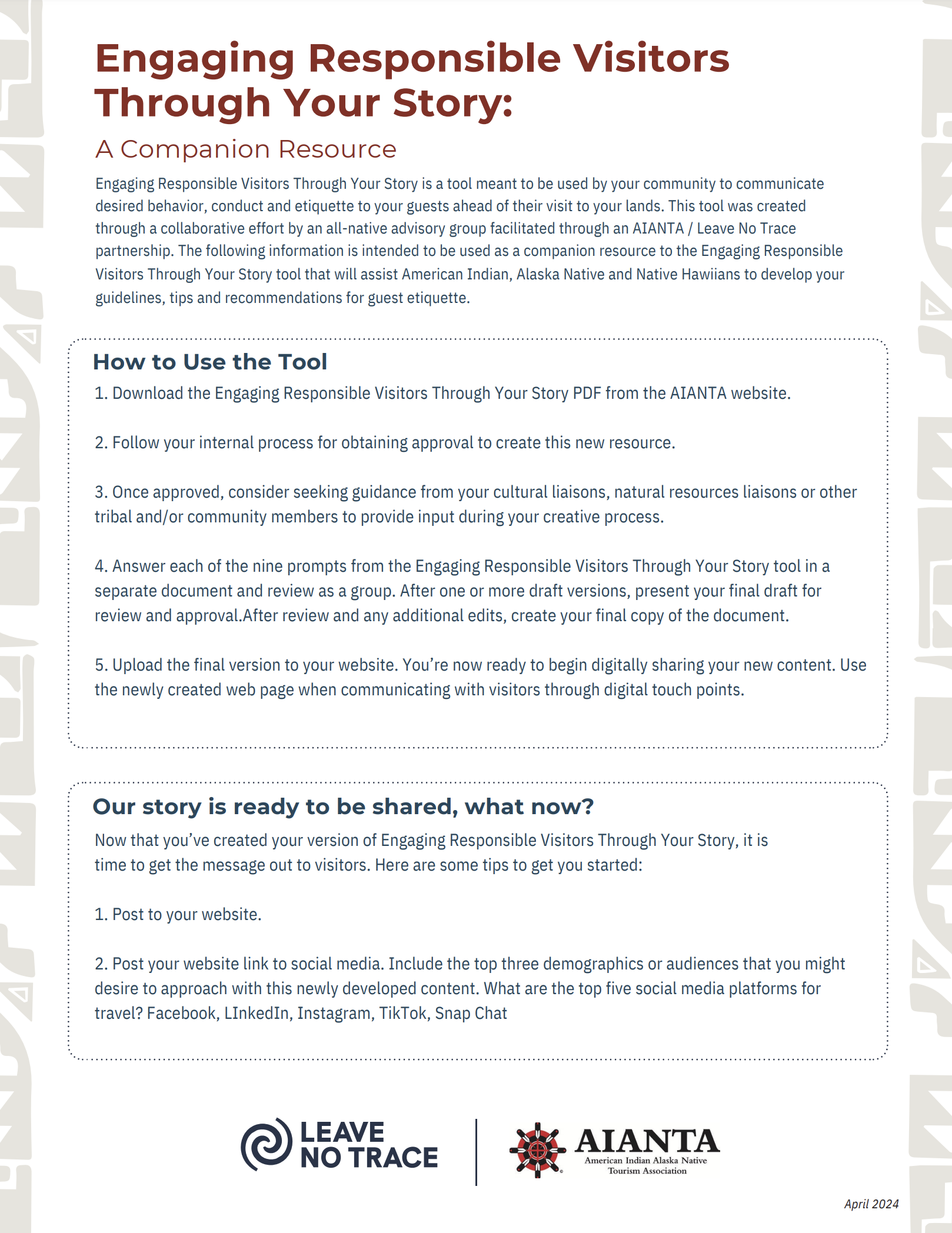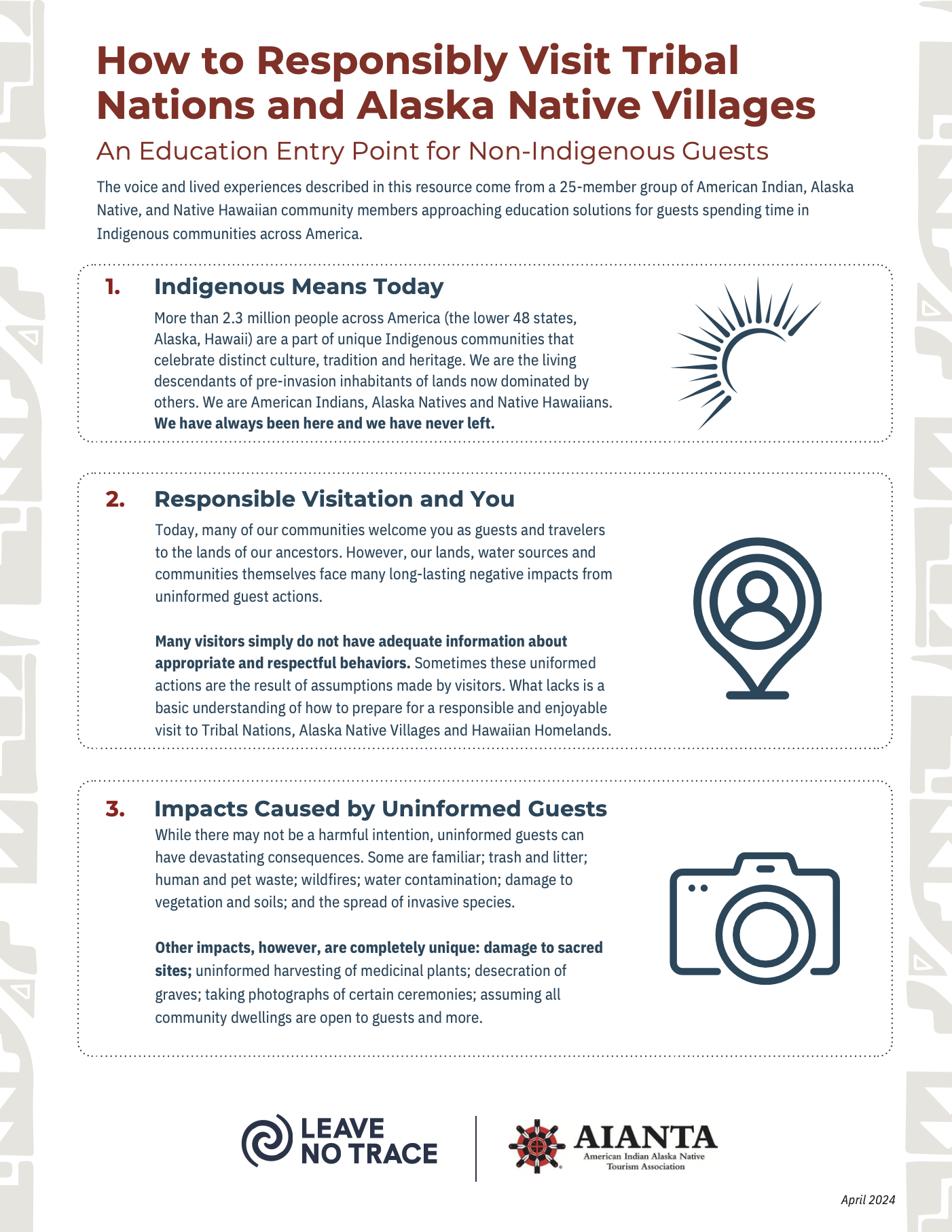
AIANTA Partnership with Leave No Trace
Visitors and travelers are spending more time in tribal communities across the United States. But visitation does not always come with understanding. In a recent article, Walker River Paiute Tribe chairman Amber Walker outlined a sentiment shared by many tribal communities.
“Visitors wanted to get into our ancestral homelands as if it is their right to fish and use our
resources for recreation, when ultimately it is a privilege.”
–Amber Torres, Chairman
Walker River Paiute Tribe
The Project
In 2021, Leave No Trace and AIANTA announced a partnership to promote a consistent, nationwide message of sustainable tourism throughout Indigenous communities across the United States. In partnership with AIANTA, the combined 50 year-efforts of both organizations encourage travelers to leave minimal impacts when visiting the great outdoors.
Project A
The Companion Resource, “Engaging Responsible Visitors Through Your Story” is a tool meant to be used by your community to communicate desired behavior, conduct and etiquette to your guests ahead of their visit to your lands.
Project B
The guide, “How to Responsibly Visit Tribal Nations and Alaska Native Villages” is an educational entry point for non-Indigenous guests. The voice and lived experiences described in this resource come from a 25-member group of American Indian, Alaska Native and Native Hawaiian community members approaching education solutions for guests spending time in Indigenous communities across the U.S.
“AIANTA is excited to share this educational resource guide with travelers who are preparing to visit Indigenous communities. AIANTA’s educational efforts directly align with the mission of Leave No Trace, as together we encourage travelers to leave minimal impacts when visiting the great outdoors.” – AIANTA CEO Sherry L. Rupert
“It’s important to realize that we Leave No Trace differently depending on the specific land managers or ecosystems. These resources developed with AIANTA give guests the necessary information on how to interact with indigenous communities in a meaningful way. Learning the story of an indigenous community and the differences between native nations and public lands is a critical step in building our outdoor ethic.” – Leave No Trace Executive Director Dana Watts

